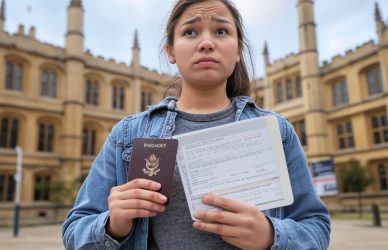New Uk Immigration Policy:The UK government has officially unveiled its 2025 Immigration White Paper, marking a turning point in how the country manages migration. This new roadmap outlines significant changes aimed at reducing net migration while aligning the system more closely with economic needs and public expectations. Whether you’re a skilled worker, student, or employer, these updates could directly affect you.
Here’s what you need to know about the proposed changes—and how they might impact your path to living or working in the UK.
Key Takeaway: Migration Numbers Are Set to Drop New Uk Immigration Policy
The white paper, introduced with statements from Prime Minister Keir Starmer and Home Secretary Yvette Cooper, promises a sharp reduction in net migration by the end of the current Parliament.
Starmer criticized the previous administration’s “open borders experiment,” with net migration hitting over 900,000 in 2023. He emphasized the need to protect public services and support sustainable growth through more controlled migration.
Read the full policy document on the UK Government website:
Home Office Immigration Policy Paper – GOV.UK
1. Skilled Worker Visa Rules Tightened
The qualifications needed for a skilled work visa are being raised. Applicants will now typically need a qualification equivalent to a UK bachelor’s degree (RQF Level 6) instead of just A-levels (RQF Level 3).
However, jobs in sectors facing shortages may still qualify under the lower RQF 3–5 levels temporarily, if approved by the Migration Advisory Committee (MAC).
Learn more:
Skilled Worker visa eligibility – GOV.UK
2. Major Shift in Social Care Recruitment
The government will gradually phase out overseas recruitment for social care roles. From 2028, new international hires will no longer be allowed under this route, although current visa holders can switch or extend their stay during the transition period.
While this is meant to encourage local hiring and improve sector conditions, industry leaders worry it could worsen staffing shortages.
Health and Care Worker visa – GOV.UK
3. New Rules for International Students
The UK has long benefited from international students—both culturally and economically (contributing around £20 billion annually). However, new rules aim to tighten oversight, particularly for lower-ranked institutions.
- Stricter compliance for sponsoring institutions
- Review of short-term language course visas
- Tougher visa grant and course completion targets
This could make it harder for institutions to sponsor students who fail to meet updated standards.
Student visa requirements – GOV.UK
4. English Language Proficiency to Be More Rigorous
All adult dependants of visa holders must now demonstrate basic English proficiency, with further improvement required over time for those extending their visa or applying for settlement.
English language requirements – GOV.UK
5. Longer Wait for UK Settlement
Currently, many people can apply for Indefinite Leave to Remain (ILR) after 5 years in the UK. Under the new policy, this will increase to 10 years, potentially slowing down the integration process for thousands of long-term residents.
Indefinite leave to remain – GOV.UK
6. Stricter Deportation Rules
Previously, non-citizens could only be considered for deportation if they were sentenced to a year or more in prison. The new rules lower that threshold—even minor offences could trigger removal, especially for short-term visa holders.
The government also aims to “clarify” how Article 8 of the European Convention on Human Rights applies to deportation appeals.
Deportation and Article 8 – GOV.UK
7. Higher Employer Fees
The Immigration Skills Charge, paid by employers when hiring international staff, will increase by 32%—the first hike since 2017. Exceptions apply to some roles like research scientists and PhD-level jobs.
Immigration Skills Charge – GOV.UK
8. Digital ID System Replaces Biometric Cards
The UK will move toward a fully digital system for verifying immigration status. The current Biometric Residence Permits (BRPs) will be replaced with e-visas and digital ID cards for easier tracking and more efficient service delivery.
Summary Table: Key Changes at a Glance
| Policy Area | Previous Rules | New Rules (2025) |
|---|---|---|
| Skilled Visa Level | RQF 3 (A-level) | RQF 6 (Degree) |
| Social Care Visas | Open to overseas workers | Closed after 2028 |
| Student Sponsorship | Moderate compliance | Higher targets and oversight |
| Language Requirements | Vary by visa | Mandatory English skills for all adults |
| Settlement Time | 5 years | 10 years |
| Deportation Threshold | 1-year prison sentence | Any criminal offence |
| Immigration Fees | No increase since 2017 | 32% increase |
| Identity Cards | Physical BRPs | Digital ID and eVisa |
Final Thoughts about Uk New Immigration Policy
These changes represent a significant overhaul of the UK’s immigration framework. While the government emphasizes economic sustainability and public service protection, there are valid concerns about accessibility, fairness, and the long-term impact on sectors like healthcare and education.
Whether you’re planning to apply for a visa, are currently in the UK, or employ international talent, it’s essential to stay informed and prepare for these changes.
Visit the official government immigration site for full details and updates: UK Visas and Immigration – GOV.UK
READ MORE:
- UK to Tighten Visa Rules for Countries With High Asylum Claims
- UK Graduate Route Cut to 18 Months UnderImmigration White Paper: Key Changes Explained





